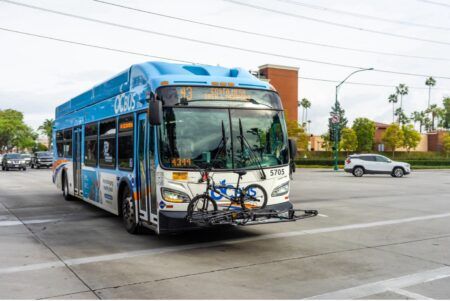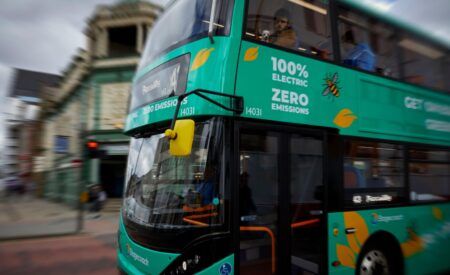A team of analytics and optimization experts from the Massachusetts Institute of Technology (MIT) has won the first-ever Boston Public Schools (BPS) Transportation Challenge by developing a computer-based model that more efficiently routes school buses.
The ‘Quantum Team’ from MIT’s Operations Research Center(ORC) was among a field of local and national computer-science and logistics specialists that competed in the Transportation Challenge, a three-month hackathon-style initiative to generate routing efficiencies within the district’s complex transportation system. The MIT team captured the US$15,000 Round 1 prize by creating an algorithm that greatly minimizes the number of bus routes by strategically reconfiguring bus stops, maximizing the number of students riding each bus, and reducing the amount of time buses travel when no students are on board.
Boston has one of the most expensive per-pupil transportation systems among school districts in the country, with the US$120m spent on transportation in the 2017 fiscal year 2017, reflecting a 7.5% (US$33m) increase over 2011.
Currently, BPS transportation staff manually build school bus routes using what is considered an industry leader in pupil transportation software. This is a process that takes several weeks to complete. The new MIT solution produces the routes in approximately 30 minutes. However, the data produced by the MIT system will still be fed into the existing software in order to pressure test the new model and ensure reliability. By implementing the Quantum Team’s system, BPS could save as much as US$5m through the reduction of 50 or more bus routes, which will help provide more funding for schools.
The new routing model is also expected to improve the on-time performance rate for BPS buses, getting students to and from school on schedule much more consistently. The distance that students walk to and from their bus stops is not anticipated to change, on average. In some cases, bus stop locations might change slightly for some students, while remaining the same for others. The MIT team took steps to ensure that no bus stops are sited in unsafe traffic locations. The Quantum Team’s system could lead to a 20,000 lb reduction in carbon emissions produced by BPS buses each day, and could remove nearly one million miles of traffic-clogging bus trips off the road each year.
BPS superintendent Tommy Chang said, “This new model of routing buses will reduce traffic and carbon dioxide emissions by decreasing the number of buses needed, helping improve our environment and ease congestion on our roadways.”




